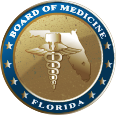Health Care Providers Could Help Stop Human Trafficking1
By Wendi Adelson, Esq.
Director of the Medical Legal Partnership Clinic
at Florida State University College of Law
“As Many As 30% Of Human Trafficking Victims Will Have An Encounter With A Healthcare Professional DURING The Time That They Are Being Held In Slavery, And Virtually None Of These Individuals Will Be Recognized As Victims By Their Healthcare Provider.”2
Human Trafficking is a form of modern-day slavery. According to international, federal and state law, human trafficking involves exploitative labor extracted through force, fraud or coercion. Florida is currently thought of as the third worst state for this crime, behind only California and Texas. 3 Victims of human trafficking in Florida can be found in sex work, farm labor, the tourism industry, nail salons, massage parlors, domestic labor, and in other fields.4 Identified trafficking victims in Florida come from diverse countries of origin, including Haiti, Mexico, the Philippines, Guatemala, Cuba, Honduras, India, El Salvador, Jamaica, and Columbia.5 Not all trafficking victims are immigrants. In 2010 the Florida Department of Children and Families identified 96 runaways from foster care (out of 2062) that were at a particular risk of domestic minor sex trafficking.6 This doesn’t show the scope of all domestic minor sex trafficking in the state, but it shows an effort by the state to track and prevent this atrocity. 7
When speaking to community groups about this issue, people will frequently ask how and why people come to be victims of this crime. The answer is that traffickers often use the hopes and dreams of victims, who often come from poor and unstable countries with corrupt governments, or from abusive homes in the United States, to enslave them.8 It is extremely profitable to extract labor or commercial sexual services from people held against their will. Human trafficking is estimated to be a $32 billion industry9, the world’s second most profitable criminal enterprise behind drug trafficking. 10 Unlike drugs, however, that you buy and smoke and finish, once you “acquire” a human being, they can be used over and over again, to their obvious detriment. The potential psychological, emotional, physical and sexual trauma suffered by trafficking victims is limitless.
Enter the medical community. Healthcare professionals are in the unique position to identify and assist these victims. For example, a study examining the experience of European trafficking victims found that 28% encountered a healthcare professional while still in captivity. 11 Healthcare professionals also have a role in restoring the mental and physical health of those who survive human trafficking. In order to properly fulfill these roles, healthcare professionals must first understand human trafficking and be able to detect signs of potential instances of this crime, and then be prepared to offer assistance. It is important to remember that trafficking can involve both sexual servitude and exploitative labor conditions. The health problems seen in victims of trafficking are largely a result of many different factors endemic to the crime: deprivation of food and sleep, extreme stress, violence, and hazardous work. Because most victims do not have timely access to health care, by the time they reach a clinician their health problems likely are advanced.12 Victims of commercial sex trafficking are at high risk for acquiring multiple sexually transmitted infections and can experience forced and unsafe abortions. 13 Physical abuse and torture often occur, which can result in broken bones, contusions, dental problems (e.g., loss of teeth), and/or cigarette burns. Psychological violence results in high rates of posttraumatic stress disorder, depression, suicidal ideation, drug addiction, and a multitude of other symptoms. 14





